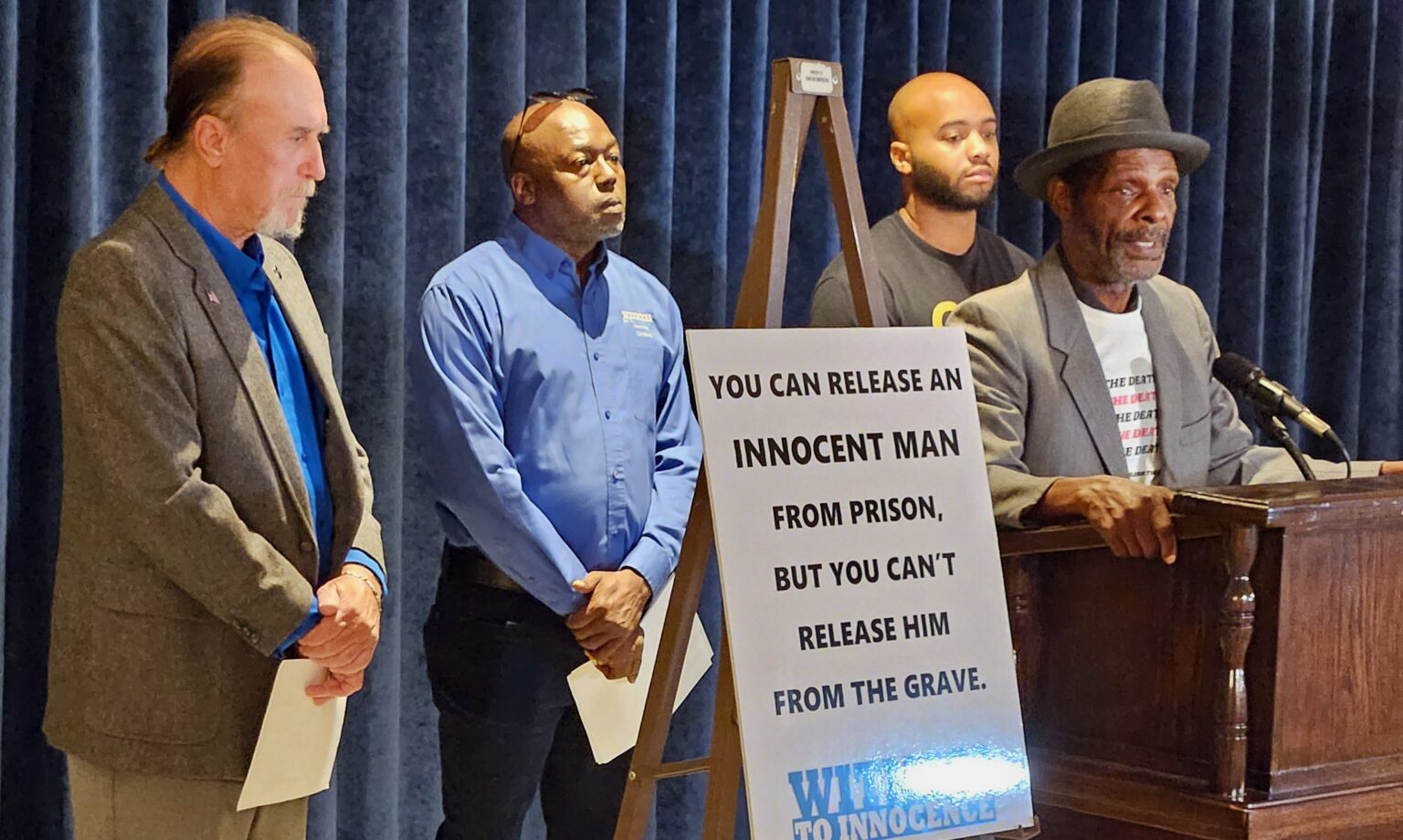Home » News » 2024 » August
News Brief
Aug. 1, 2024 |
By: Annelise Hanshaw - Missouri Independent
Death row exonerees urge Missouri AG to consider Marcellus Williams’ innocence

By Annelise Hanshaw - Missouri Independent
A group of exonerated after years on death row gathered at the Missouri Capitol Thursday to call on Attorney General Andrew Bailey to stop blocking efforts to vacate the conviction of Marcellus Williams.
Williams was convicted of first-degree murder in the 1998 stabbing death of Lisha Gayle during a robbery of her suburban St. Louis home. He is scheduled to be executed on Sept. 24.
But since his 2001 conviction, new testing was able to determine DNA on the murder weapon matched someone else.
Four members of a group called Witness to Innocence, each of whom were sentenced only to later have their innocence revealed, shared their stories Thursday in Jefferson City and advocated for Williams’ release.
“We’re asking the Attorney General of Missouri to stop acting like innocence doesn’t matter,” said Herman Lindsey, executive director of Witness to Innocence and exoneree from Florida’s death row. “We are asking you to represent the people of Missouri by looking for the truth over politics.”
St. Louis County Prosecuting Attorney Wesley Bell, who is running for U.S. House, filed a motion earlier this year to vacate Williams’ conviction, and a St. Louis County Circuit Court judge will hold an evidentiary hearing Aug. 21.
Just 30 minutes after the exonerees began their press conference, Bailey joined Gov. Mike Parson one floor above in the Capitol for their own press conference on unauthorized cannabinoids.
Asked about Williams’ case, Bailey said: “The criminal justice system has to have a component of finality.”
“The juries of the state of Missouri under the Sixth Amendment have a right to participate in that process,” he said, “and we should respect and defer to the finality of the jury’s determination.”
Bailey said he doesn’t want to forget the evidence used in the original conviction.
The original case relied on testimony of a witness who served as a jailhouse informant in exchange for a reduced sentence.
Williams’ isn’t the first case that has stirred questions of innocence after new evidence arrived post-conviction.
Among Witness to Innocence’s speakers was Joseph Amrine, who was exonerated in Missouri in 2003 after informants admitted to lying during trial. The Missouri Attorney General’s office, which at the time was then led by Democrat Attorney General Jay Nixon, acknowledged Amrie’s innocence but still pushed for execution.
Amrine’s case made it all the way to the Missouri Supreme Court, where Judge Laura Denvir Stith questioned then-Assistant Attorney General Frank Jung: “Are you suggesting … even if we find that Mr. Amrine is actually innocent, he should be executed?”
“That’s correct, your honor,” Jung said.
For the last 30 years, the Missouri Attorney General’s office has opposed every innocence case.
“The Missouri Attorney General’s office is emphasizing winning and personal gain over truth and justice…. To them, executing a person is just the cost of doing business,” Lindsey said.
According to the Death Penalty Information Center, Missouri has exonerated four people from death row and has killed 99 since 1976, with four executions in 2023.
![]()






